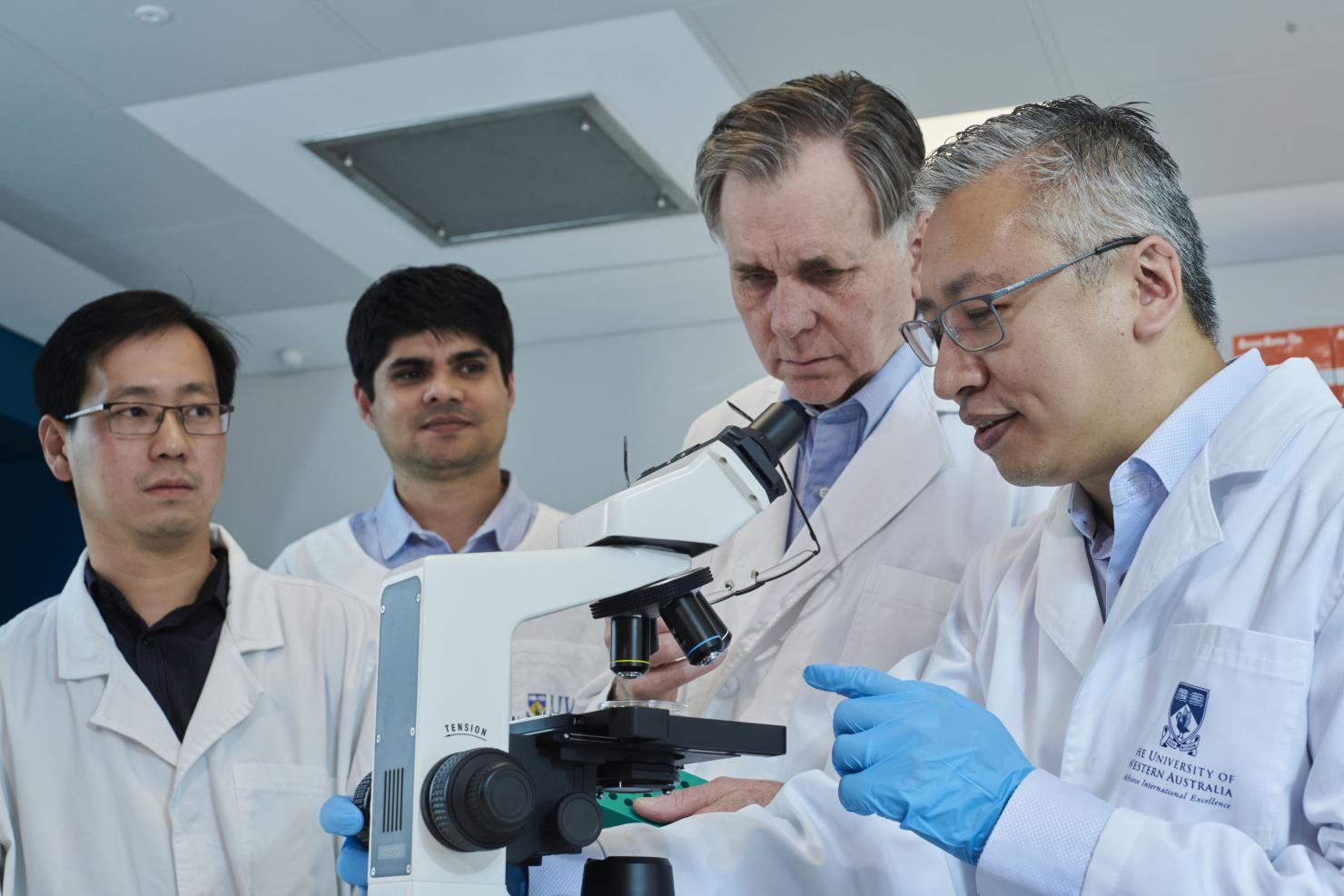It was such a desperate experiment that he didn’t dare tell his wife.
Barry Marshall was a doctor at the Royal Perth Hospital in 1981 when he became convinced that stomach ulcers were caused by bacteria. That was a big leap from the prevailing wisdom at the time that considered stress to be the underlying factor.
But a hospital colleague of Dr Marshall, pathologist Robin Warren, had demonstrated that the human gut could easily be overrun by a bacteria called Helicobacter pylori (H. pylori).
By taking biopsies from patients, Dr Marshall was able to link their ulcers to the bacteria. In his mind, that meant instead of a treatment for life, they could be cured by a simple and cheap dose of antibiotics.
“When the work was presented, my results were disputed and disbelieved, not on the basis of science but because they simply could not be true,” he wrote after jointly receiving the Nobel Prize for Medicine with Robin Warren in 2005.
Given H. pylori only infects humans, there was no success with animal trials. So, the then 30-year-old doctor took measures into his own hands, drinking a broth laced with H. pylori.
“I didn’t actually expect to become as ill as I did. Significantly, I hadn’t discussed it with [my wife] Adrienne.”
Tabloid newspapers at the time labelled him a ‘guinea-pig doctor’ but he had proved his point. His self-treatment with antibiotics was successful and paved the way for a revolution in the way ulcers are diagnosed and medicated.

New program targets stomach cancer
Forty years on, Professor Marshall still oversees game-changing research at the University of Western Australia’s Helicobacter Research Laboratory.
The National Foundation for Australia-China Relations is backing a world-leading initiative at the Laboratory to deliver an intensive training program for Chinese doctors and clinical scientists on how to treat H. pylori.
With gastric ulcers no longer considered a chronic condition in the western world, much of the lab’s efforts are focused on East Asia where H. pylori infections drive large rates of stomach cancer.
“Because not many laboratories in China are able to culture H. pylori,” says the program’s lead researcher Dr Alfred Tay, “there’s very little research going on in China about why the East Asian H. pylori strain is so dangerous and how it causes cancer.”
Participants in the training program include both scientists and doctors and hail from all over China, whether it be major cities like Beijing and Shenzhen or remote areas like Guiyang and Lanzhou where stomach cancer is more common.
“Antibiotic resistance is the biggest challenge for H. pylori treatment in China,” says Dr Tay.
It’s a problem that not only China but countries globally are facing, as H. pylori grows resistant to standard antibiotics used to combat it, especially Clarithromycin and Metronidazole.
“These two antibiotics are commonly used for various diseases, but without the support of a proton pump inhibitor, these two antibiotics are useless against H. pylori and it can learn to become resistant to them. This is why the standard therapy is failing,” Dr Tay says.
This could result in the patient getting exposed to multiple antibiotics that not only don’t kill H. pylori but make it stronger.
And it’s this multidrug-resistant H. pylori that is at the heart of the training program initiative. Participants learn how to cultivate and study the bacteria.
“If you have the bacteria, not only can you study the antibiotic resistance, you can also sequence its genome, trace its origin, and understand how it became resistant to the antibiotics,” Dr Tay says. “Armed with this information, the doctors can then bring precision medicine and personalised treatment to reality.”

Success rates soar
Previously, many Chinese scientists were seeing H. pylori culture success rates as low as 10-30 per cent. But Dr Tay says the Helicobacter Research Laboratory’s technique can triple or even quadruple that figure.
That’s what happened at the Shenzhen Dapeng Kuichong Hospital, a relatively small hospital with no microbiology lab. Its culture success rate jumped to more than 80 per cent after participating in the training program.
“Doctors at the hospital are now considered some of China’s leading experts on helicobacter,” says Dr Tay.
More recently, the Helicobacter Research Laboratory has begun trialling another way to help Chinese doctors treat H. pylori.
A semi-automatic bacterial culturing machine is being used in Shenzhen. Although the machine’s culture success rate of 60 to 70 per cent is lower than the laborious manual technique, Dr Tay says it’s a good middle ground to reach more hospitals more quickly.
Lectures prove an online hit
But the work of the University of Western Australia’s Australia-China Helicobacter Training Program extends beyond cultivating bacteria.
A series of public lectures in China has been increasing general awareness of H. pylori and the best ways to tackle it. Patients learn the best questions to ask their doctors as well as things they can do to reduce their overall risk. Doctors are taken through new advances in frontline treatments and best practice for diagnosis.
Amid the pandemic, the lectures have switched to virtual meetings—with huge success. The last one saw around 35 million people tune in.
Many are no doubt drawn by the reputation of Barry Marshall. His daring self-experiment in 1982 proved that committed research can make a difference.
Alfred Tay says he’s proud to follow in his footsteps: “I see this as very important and meaningful work because we are really trying to help the Chinese people solve the H. pylori and gastric cancer problem.”
